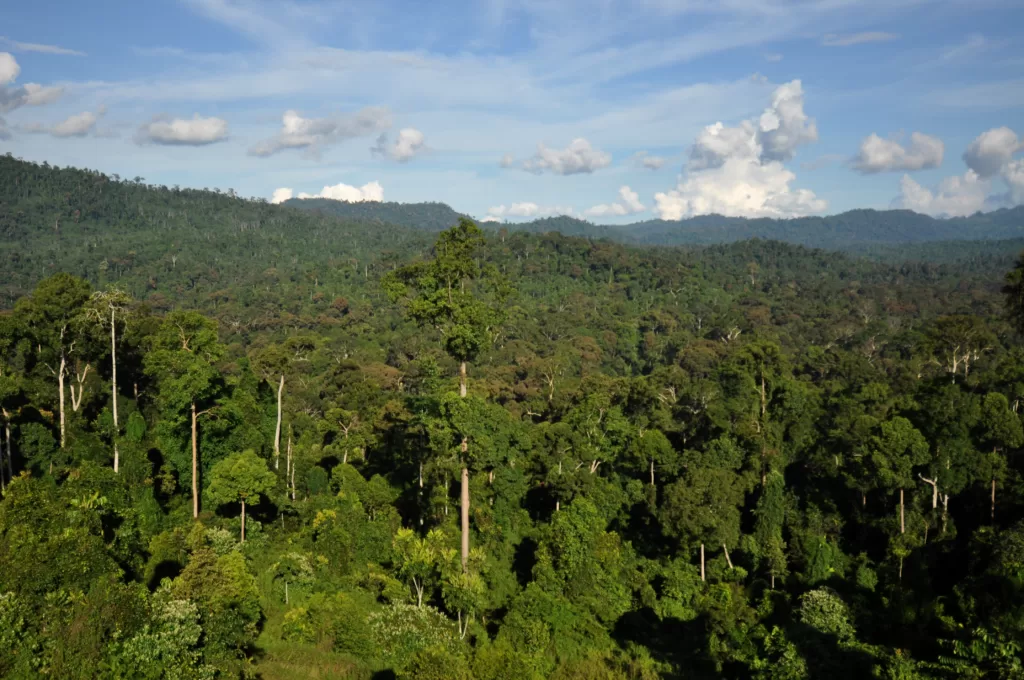A recent study has highlighted additional concerns stemming from climate change. It underscores the potential jeopardy faced by tropical trees, which might encounter the threat of exceedingly high temperatures, inducing necrosis in their leaves. This peril could potentially trigger extensive leaf loss and even disrupt the fundamental process of photosynthesis.
The decline in the photosynthesis process among tropical trees commences at an average temperature of around 46.7 degrees Celsius.
While this temperature might seem elevated at first glance, it’s crucial to acknowledge that leaves can actually become considerably hotter than the ambient air temperature. This insight emerges from a collaborative effort among researchers originating from countries like the United States, Australia, and Brazil, who conducted this comprehensive study.
The scientists employed temperature data transmitted by thermal satellite sensors aboard the International Space Station, situated approximately 400 kilometers (nearly 250 miles) above Earth’s surface. This information was coupled with data from leaf-warming experiments conducted on-site, where scientists meticulously affixed sensors to leaves within the canopy. CNN reported on the study, referencing these published findings.
In the study, the researchers pointed out that the convergence of climate change and deforestation at local levels could potentially be edging the hottest zones within tropical forests precariously near, or even over, a crucial thermal threshold. As a result, our study’s outcomes underscore the significance of combining robust climate change mitigation objectives with a reduction in deforestation rates. This dual approach could effectively safeguard the essential domains of carbon, water, and biodiversity by preventing them from crossing critical temperature thresholds.

